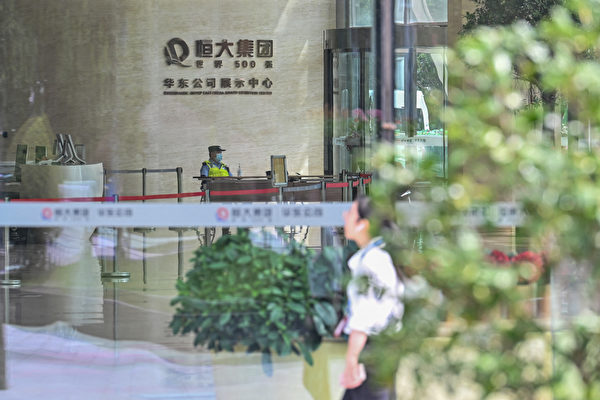
A German data service released an analysis report on China Evergrande on Nov. 17, revealing that the default of China Evergrande and the Chinese real estate crisis caused estimated losses of about $10 billion for the top 10 professional pension funds and investment funds in Asia. Among them, China Evergrande’s bonds are the riskiest, with $1.2 billion in exposure.
Deutsche MarktScreening Agentur GmbH (DMSA) is an independent data service based in Berlin. DMSA recently analyzed the top 10 Asia-focused pension and mutual funds with the greatest exposure to Evergrande bonds, estimating a combined loss of $10 billion. About $7 billion of those losses have already been incurred, and about $2 billion will be incurred in bankruptcy filings. In addition, international investors are expected to lose $158 billion on their investments in Evergrande’s credit default swaps.
A Credit Default Swap (CDS) is a derivative product that allows a “credit provider (lender)” to transfer credit risk. For example, Evergrande borrowed $100 million from Bank A. In order to reduce the default risk, Bank A signed a CDS contract with Bank B and paid the amount equivalent to the insurance premium to Bank B. n when Evergrande defaults, Bank B shall bear the loss of Bank A, that is, the risk of default is transferred from Bank A to Bank B through CDS.
top 10 funds identified by the DMSA research are: Fidelity—Asian High Yield, UBS—Asian High Yield USD, Ashmore SICAV—Emerging Markets LC, Ashmore SICAV—Emerging Markets LC, iShares USD Asia High Yield Bond ETF, PIMCO Asia High Yield Bond Fund, BlackRock—Asian Tiger Bond, Fidelity—Global Multi Asset Income, Eastspring Investments—Asian Bond, and AB FCP I—Global High Yield Portfolio.
Evergrande and other China exposures contributed to losses of about 21 percent for the 10 funds this year, totaling $7 billion, the report said. Evergrande’s bonds are now trading at a quarter of par, or 25 cents. With a redemption rate of 5 percent for every $100 in bankruptcy, according to Fitch, a further 6 percent, or $2 billion, is expected.
“If Evergrande will be bankrupt, the above funds would lose $9 billion in total year-to-date,” said Marco Metzler, senior analyst at DMSA.
Evergrande’s reported exposure is only $1.2 billion, but actual losses could be nearly ten times that amount, Metzler argues, saying that the difference can be explained by CDS. According to a research note from Goldman Sachs, the investment bank, the market’s CDS exposure to Evergrande is about $158 billion, meaning that the spillover effect of Evergrande’s bankruptcy would lead to $158 billion in losses on top of the $23.7 billion in bonds.
China’s real estate market is worth about $55 trillion, twice the size of the U.S. market. Meanwhile, real estate contributes 29 percent of China’s GDP, compared with 10 percent to 20 percent in other countries. That’s why China’s property market is arguably the most important part of the global economy, but Chinese developers such as Evergrande are heavily indebted, leading to huge losses for international investors.
Based on available information, the DMSA said Fidelity and UBS’s Asian high Yield funds were Evergrande’s two riskiest funds. UBS—Asian High Yield USD, which holds 45.7 percent of real estate bonds, is down 20.8 percent so far this year. Fidelity—Asian High Yield, which holds 34.2 percent of real estate bonds, is down 17.3 percent so far this year.
Metzler said the top 10 funds, in addition to their holdings of $1.2 billion in Evergrande bonds, also held bonds of other highly indebted Chinese property companies, such as Fantasia Holdings Group. High exposure to property bonds is now the undoing of these funds.
High losses at the fund may have triggered personnel changes. UBS Asia bond fund manager Ross Dilkes is resigning for undisclosed reasons, Bloomberg reported. According to the DMSA report, as of Sept. 30, UBS also held Fantasia Holdings Group’s bonds in addition to Evergrande bonds.
risk of Evergrande and other Chinese real estate companies defaulting on their dollar debt has caught the attention of the Biden administration. In an interview with CBS News, U.S. Treasury Secretary Janet Yellen said the Biden administration is closely monitoring the debt crisis in China’s real estate sector and how Chinese regulators are monitoring the risk.
Pezou : Top 10 Asian Funds Hit Hard by Chinese Property Debt